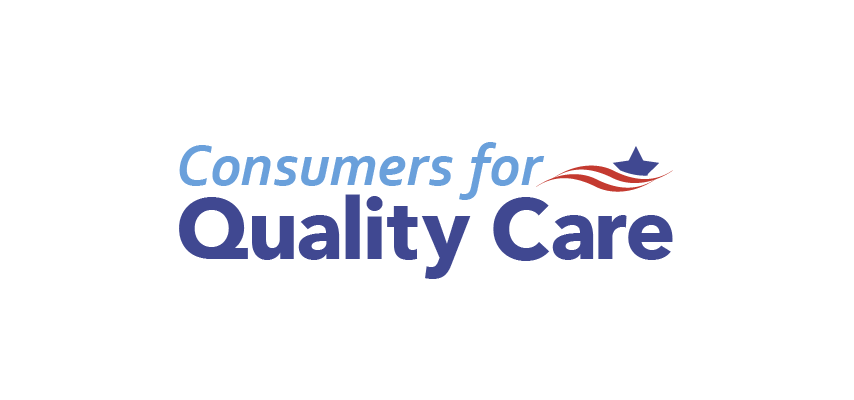CQC Issues Negotiator’s Guide for Policy Makers to Help Address Consumer Health Care Concerns
By Consumers For Quality Care, on April 9, 2019

New CQC-Ipsos Survey Reveals Americans Want More Predictability in Costs and Appear Willing to Pay More for Higher Quality Coverage
Washington, D.C. – Consumers for Quality Care has released a Negotiator’s Guide to give Members of Congress and administration officials a clearer understanding of what consumers want them to tackle when it comes to health care. The guide contains findings from a new Ipsos national poll which found that Americans are almost universally worried about the cost of health care, no matter their income level, age, gender, race or political leaning. They want more predictability in their health care costs, and they may be willing to pay more upfront for higher quality insurance coverage and prescription drug benefits that will be there for them when they need it, over junk plans with minimal coverage. The full survey findings can be found here.
“Americans are overwhelmingly concerned about the cost of uncertainty in the health care system and appear willing to pay more for predictability, better value and quality of care,” said CQC Board Member Donna Christensen. “While Trump revives talks of ACA repeal, U.S. health care consumers want policy makers to enact bipartisan changes that give them more certainty in coverage and costs. Policy makers must address patients’ fears connected to unpredictability, surprise costs, the complexity of medical billing, and a lack of transparency across the health care system.”
When given a choice, the survey indicates that 81 percent of Americans would rather pay more on a monthly basis for a health plan that has comprehensive coverage with minimal fees when they need treatments, versus 19 percent who would rather pay less on a monthly basis for a health plan with skimpy coverage and pay large fees for needed treatments. Similarly, 75 percent supported a proposed Medicare drug rebate policy, even when told that on average, seniors would save on out-of-pocket costs and deductibles, but pay $3-$6 more per month for insurance.
Americans’ worries of health care costs are due to the complexity of medical billing and lack of pricing transparency in the system. Ninety-one percent are concerned about receiving surprise bills from hospitals, 65 percent say it is difficult to understand the cost of care at a hospital, including finding out how much a hospital charges for a specific type of care, and 60 percent support capping the amount hospitals can mark-up their medicine prices.
Unexpected costs, in particular, are an acute concern and Americans want lawmakers to take real steps to alleviate this issue, instead of just paying lip service to the problem.
- 88 percent say lowering out-of-pocket costs for health care should be a top priority for Washington
- 85 percent believe politicians are more interested in bumper sticker slogans than real solutions when it comes to health care
“This research makes clear that consumers across the country want policy makers to take tangible steps and push forward real solutions to alleviate the unpredictability of health care costs – and finally help them understand how much they will pay for care,” said Christensen. “The Negotiator’s Guide shows what policy solutions are supported by Americans – and those that are not. We urge Members of Congress and the administration to use it and work to inject more certainty into the health care system for consumers.”
Americans often find themselves in the dark about costs and struggle to understand the intricacies of pricing across the health care system.
- 91 percent of consumers agree they need to better understand the costs associated with health care
- 91 percent say that pharmaceutical companies should have to provide more information about drug costs and financial assistance that may be available to patients
- 87 percent say it is concerning that hospitals make it difficult for patients to receive itemized bills for the care they receive
- 75 percent say medical bills are confusing to understand
When asked which kind of health care system will benefit them and their family more – Single Payer/Medicare for All, Affordable Care Act/Obamacare or Neither – Americans are split, showing this debate is partisan, and far from settled.
This new Ipsos poll was conducted March 22-26, 2019. The survey sampled 2,000 adults age 18+ from the continental U.S., Alaska and Hawaii. The interview was conducted online in English.
More information can be found at www.consumers4qualitycare.org/research.
ABOUT
Consumers for Quality Care (CQC) is a coalition of advocates and former policy makers working to provide a voice for patients in the health care debate as they demand better care. CQC is led by a board of directors that includes the Honorable Donna Christensen, physician and former Member of Congress; Jim Manley, former senior advisor to Senators Edward Kennedy and Harry Reid; Scott Mulhauser, founder of Aperture Strategies and former senior advisor to the Senate Finance Committee and Vice President Joe Biden; and Jason Resendez, community advocate and Executive Director of the LatinosAgainstAlzheimer’s Network and Coalition.
To learn more about Consumers for Quality Care and the issues consumers are experiencing, visit www.consumers4qualitycare.org.
